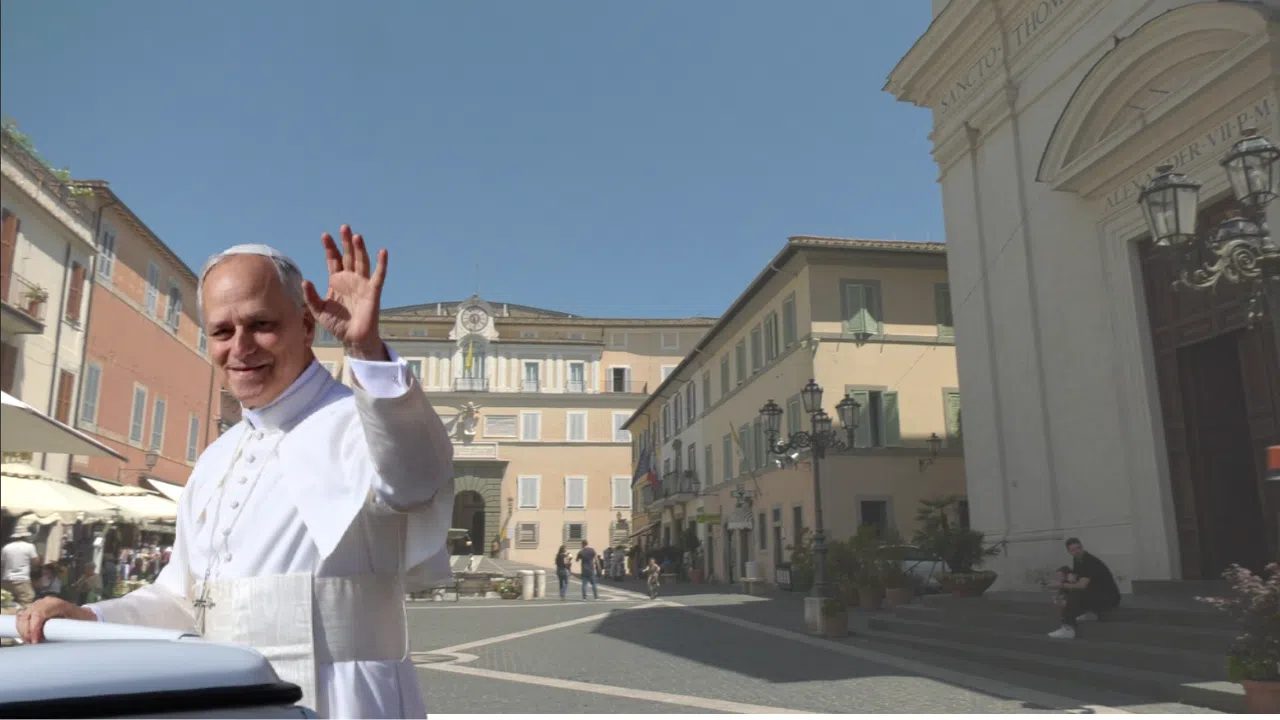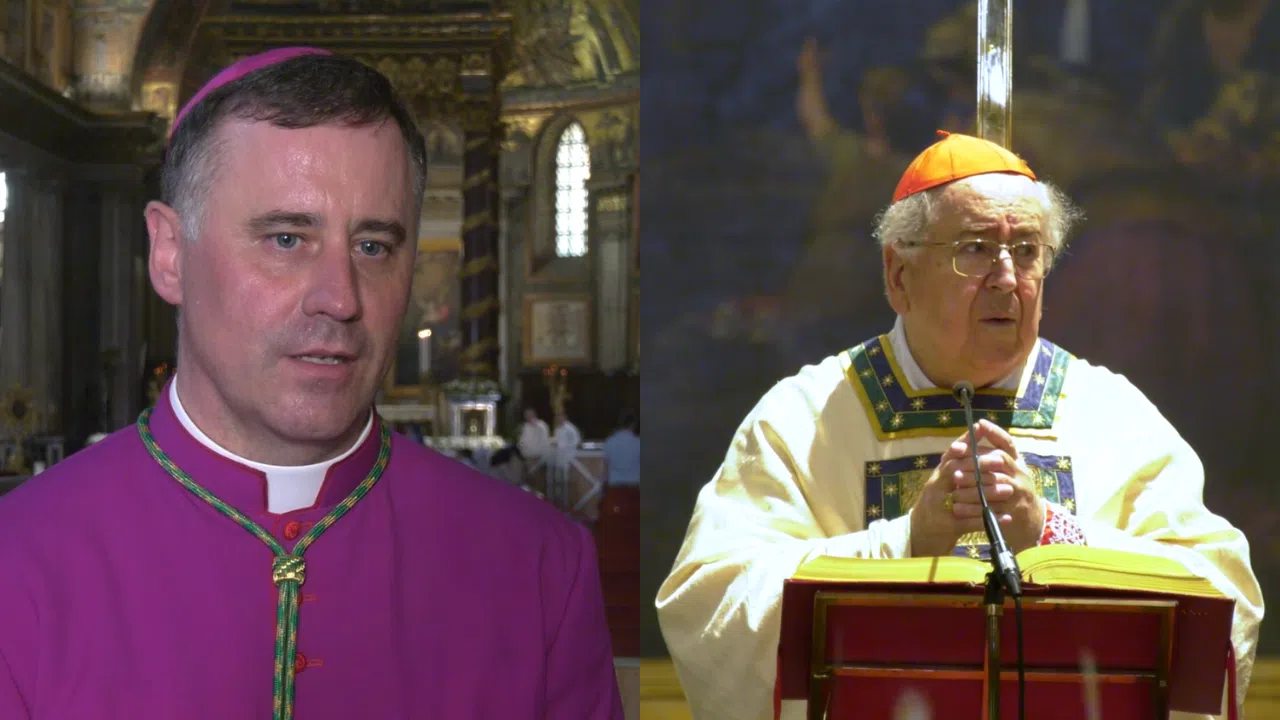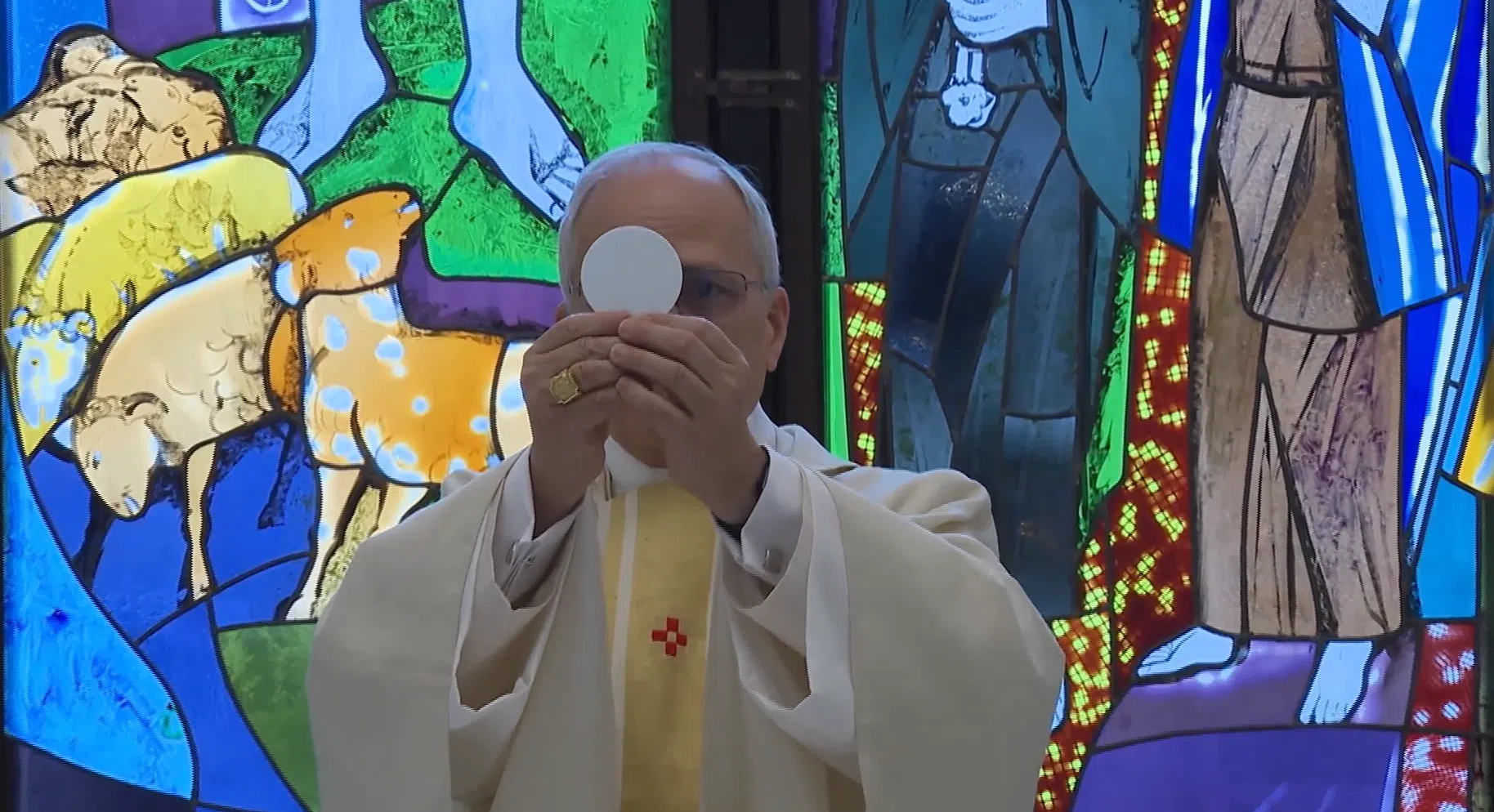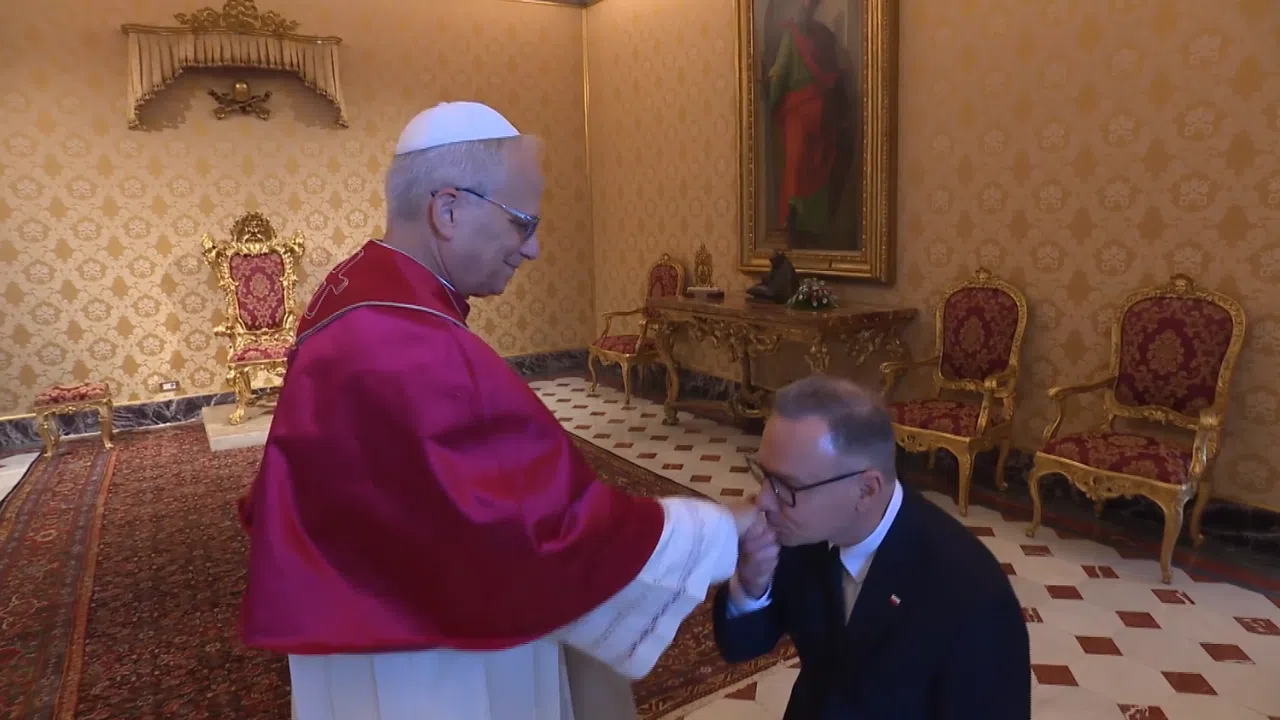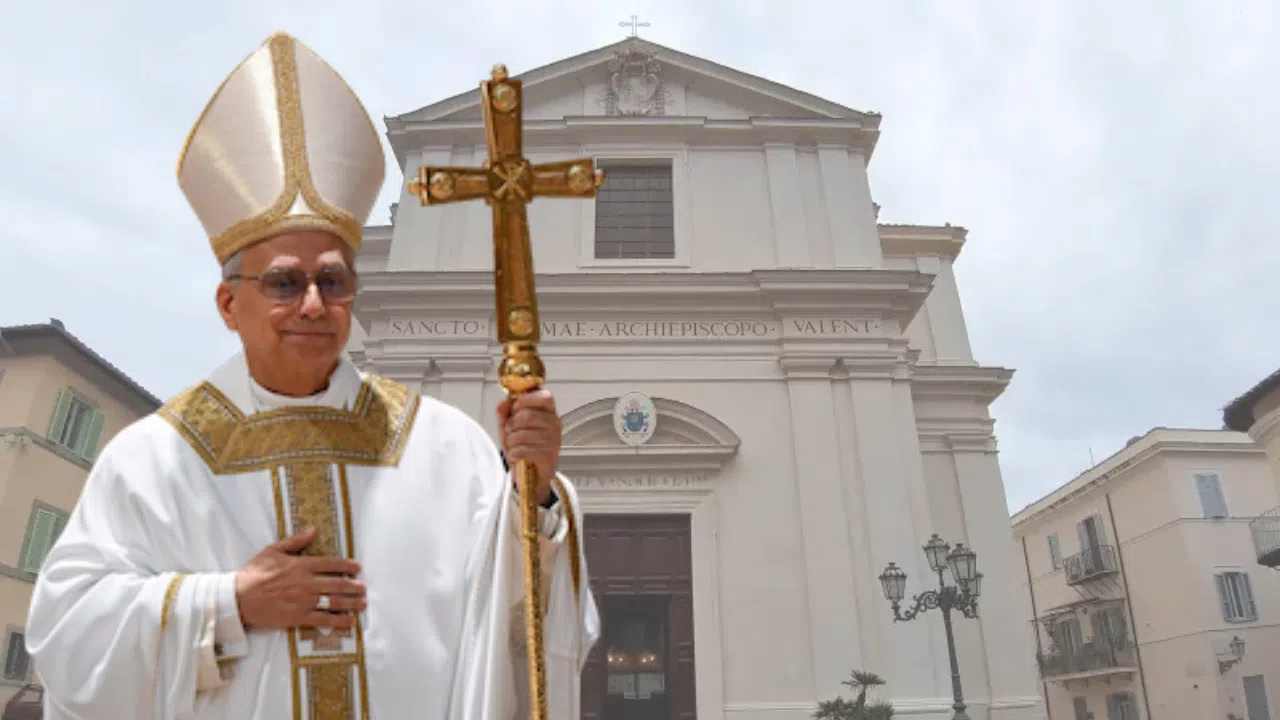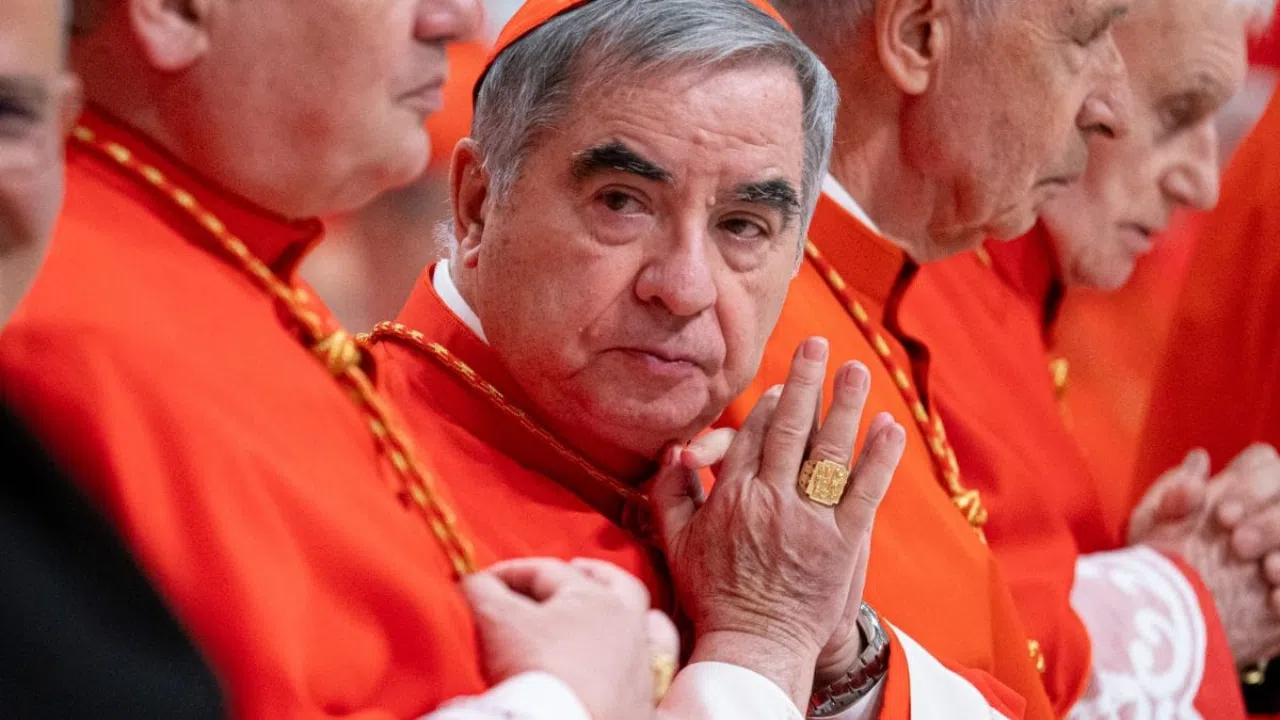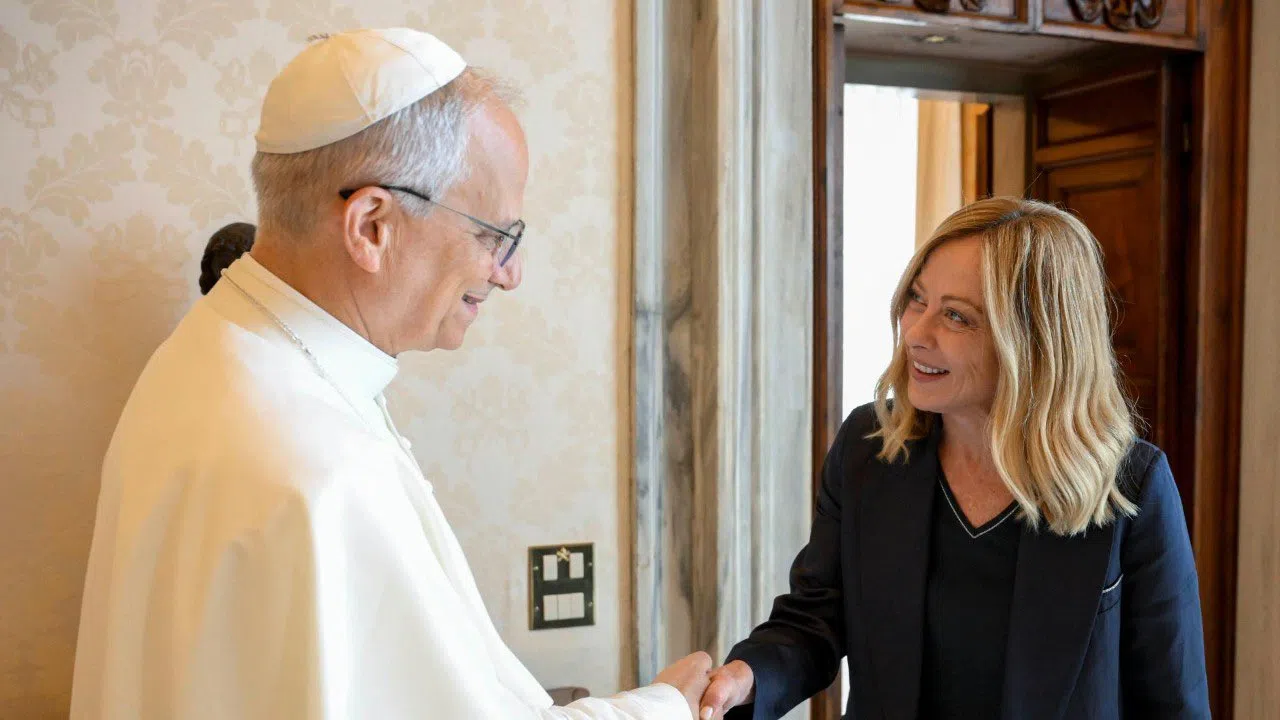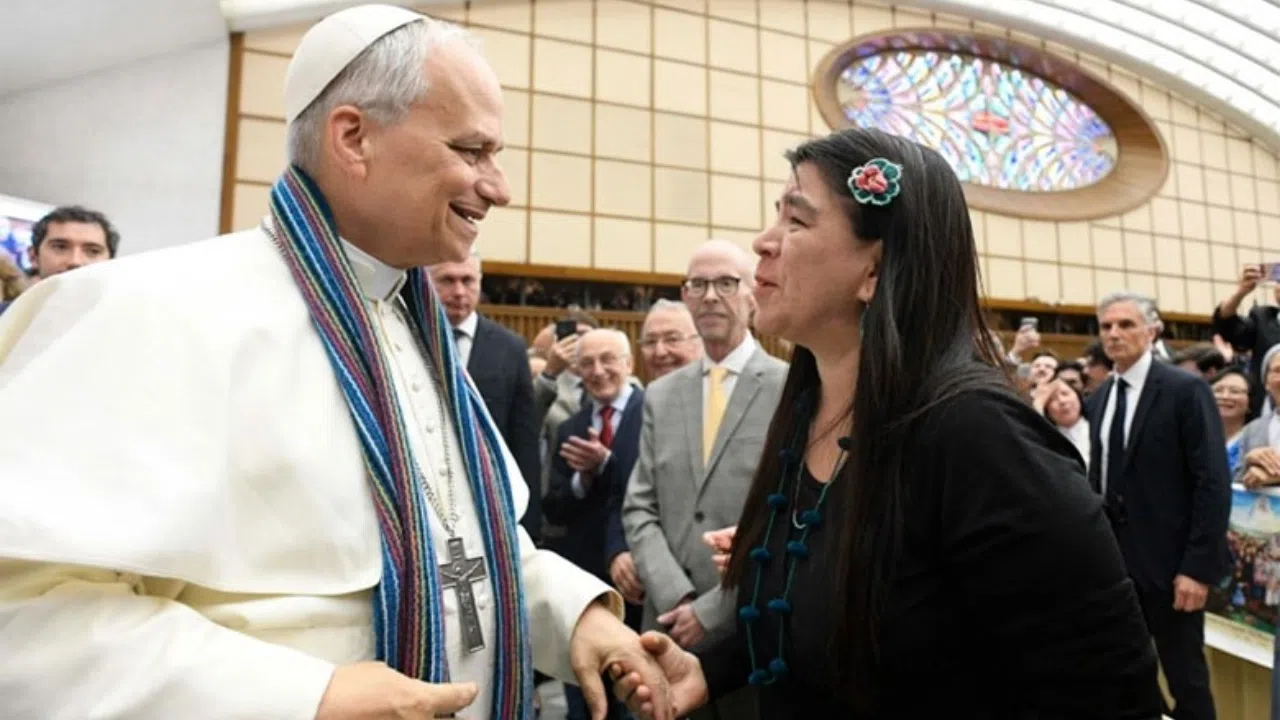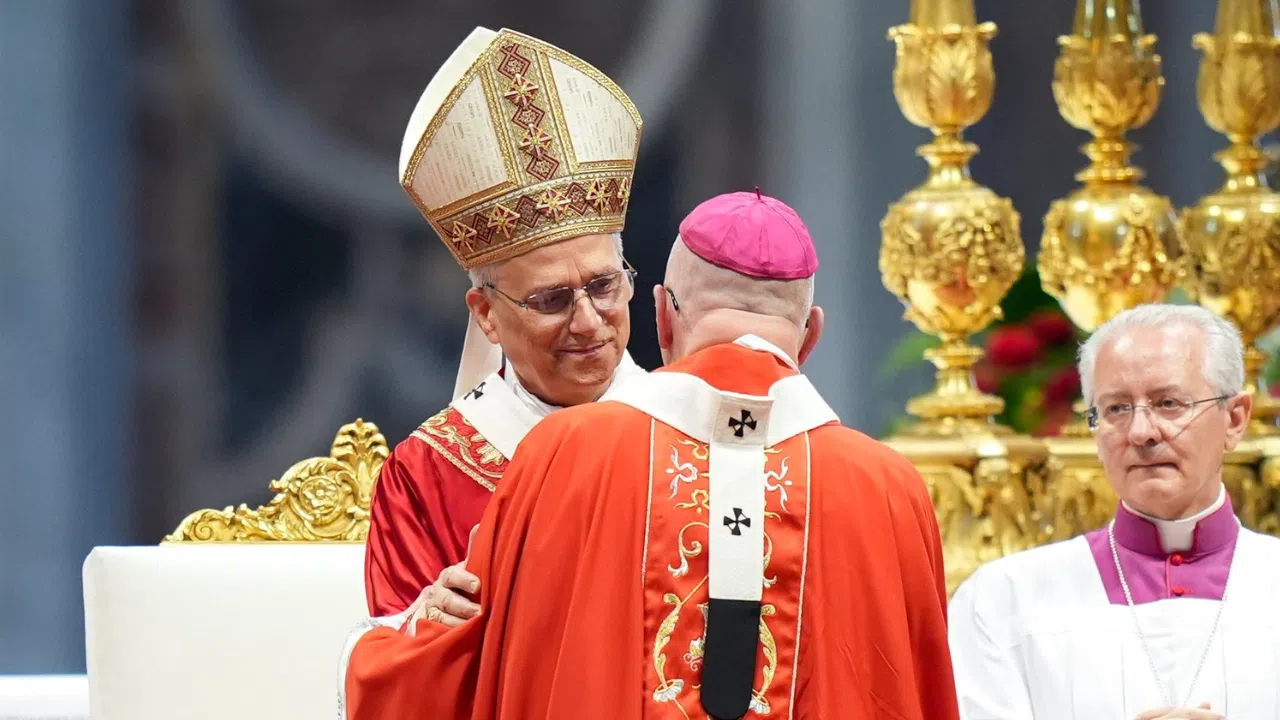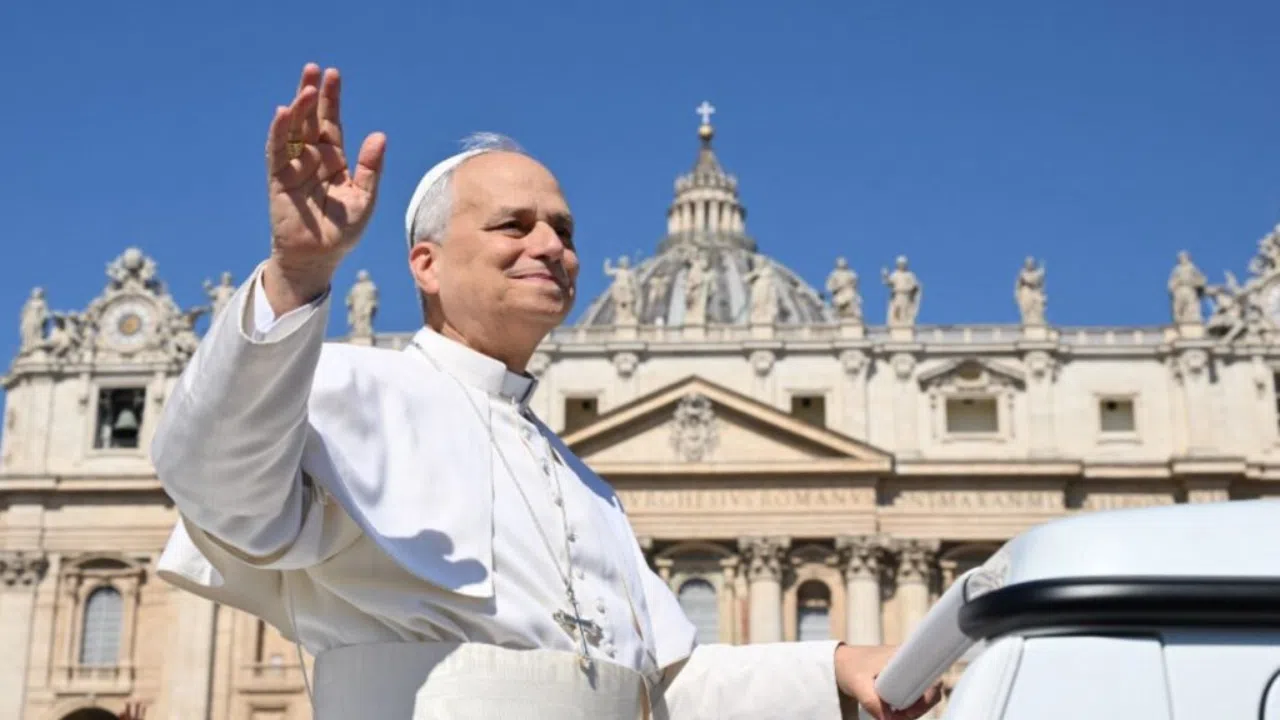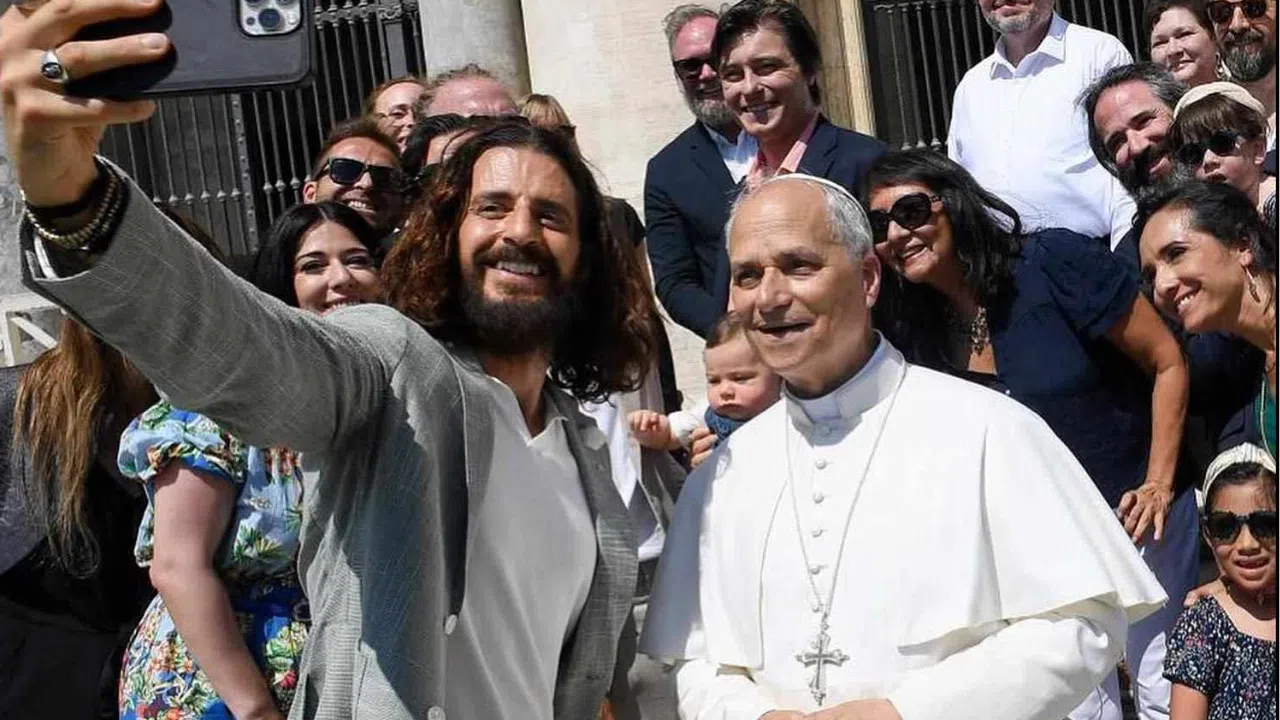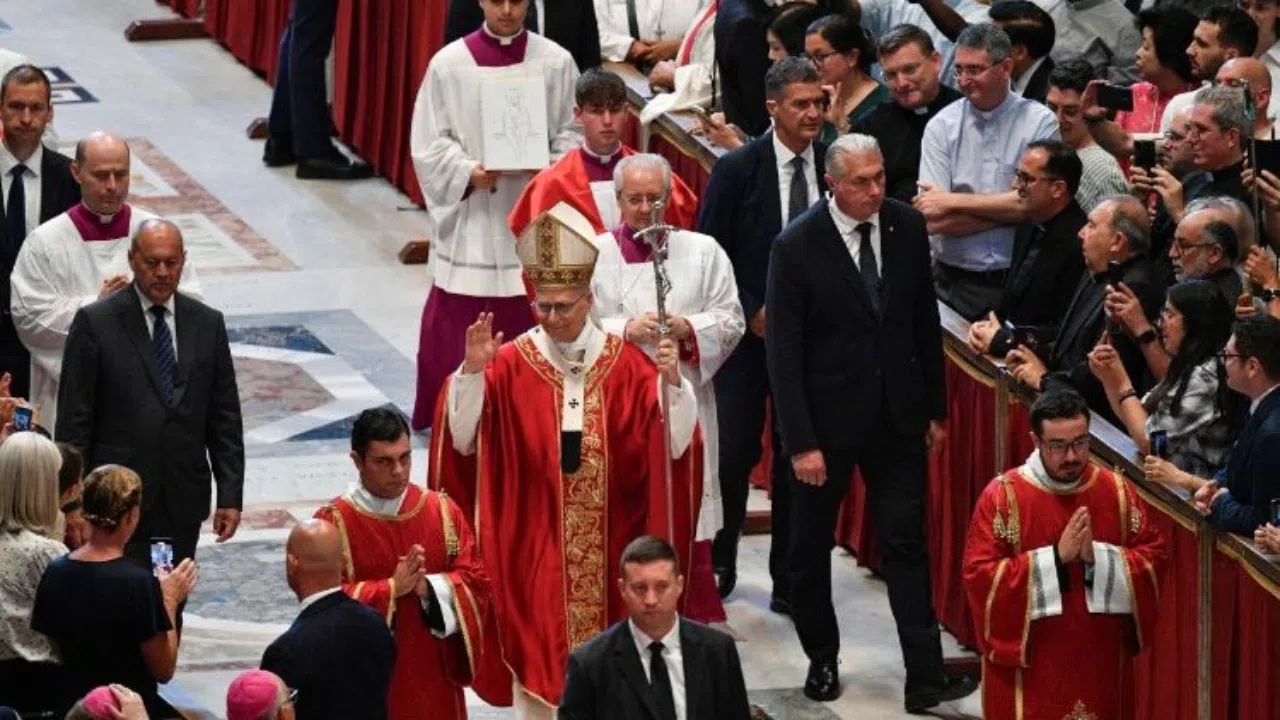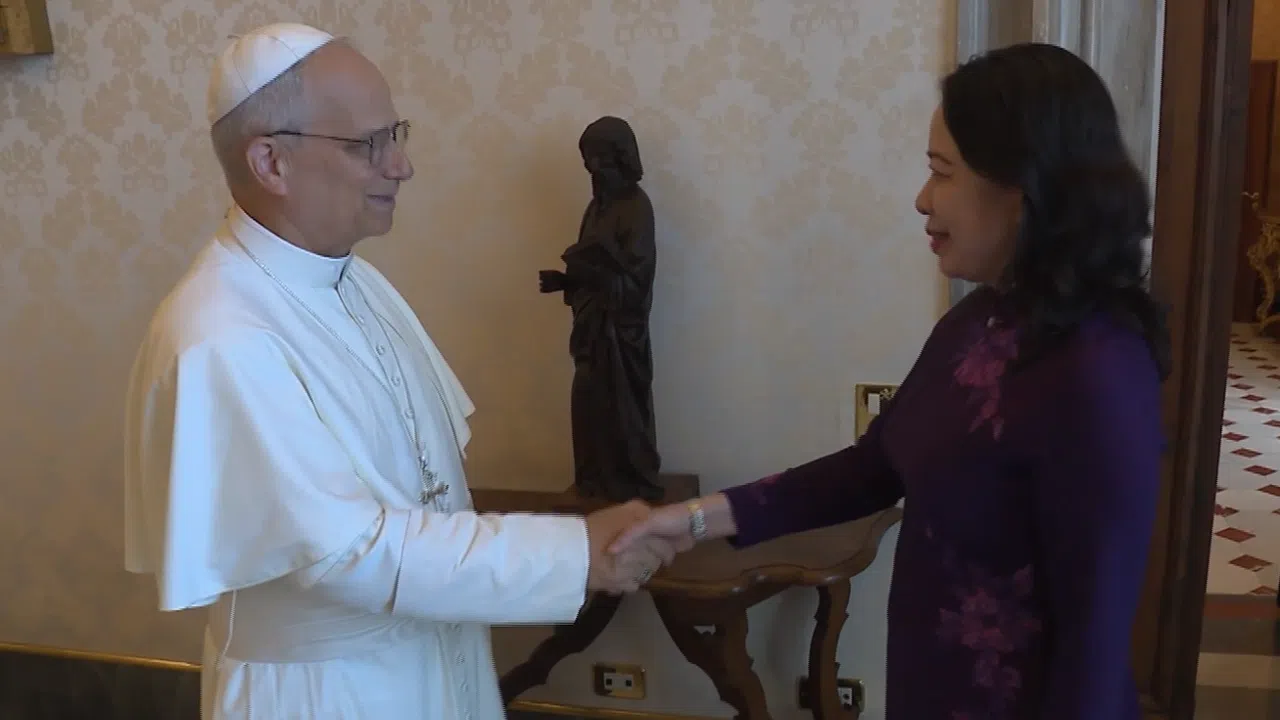The Synod on Synodality marked an unprecedented milestone. For the first time in history, women were not only able to have a voice, but could also vote at the same level as cardinals or bishops.
MARÍA LUISA BERZOSA
Consultant to the Synod Secretariat
At the Synod, no one is in his role. It is not the cardinal “of” or the bishop “of.” They are out of their place and we are all on the same plane. And this time, it was stamped with the round tables. In other synods, there were tiers from cardinals to the laity. Now, we are on the same plane.
Two of the women in the Synod hold leadership positions as delegate presidents together with seven other men. They are Maria Dolores Palencia, the Mexican nun who accompanies migrants, and the Japanese consecrated woman Momoko Nishimura, a missionary and translator of the encyclical 'Fratelli Tutti' into Japanese.
The 54 women voting in the Synod have been chosen in two ways: by pontifical nomination, that is, appointed directly by the Pope; or as members of the continental assemblies.
Of the 52 participants directly appointed by Pope Francis, six are women, including five nuns. One of them is Sister Xiskya, known for her evangelizaion on social media as a "digital missionary" in the world of Instagram and TikTok.
SR. XISKYA VALLADARES
Digital missionary
If many of the missionaries have been evangelizing in the networks for a long time, they have done it on their own initiative; very few with institutional support and with scarce resources. But for this listening project, it was necessary to get together and create spaces, that is, a network among the missionaries that would allow us to meet and discern together.
The only laywoman to make this list, chosen by the Pope, is the theologian Cristina Inogés. The Spaniard has highlighted on several occasions the difficulties that many women have had to face within the Church, starting with her own.
CRISTINA INOGÉS
Theologian
I am a Catholic woman by choice, by discernment, but I had to study in a protestant school because my bishop did not want to sign the permission for me to study in my diocese. My bishop died, I prayed for him, but I always had a little thorn in my side, which was my first experience that, because I was a woman, my church, my local church, rejected me. It is true that in some places this is being overcome, in Spain women can now study, but it was not so long ago that this happened. So, that leaves a mark.
Formation is a key issue demanded by many of the women participating in the Synod. One of them does not have a vote in the assembly, since her work is focused on coordinating the round tables.
MARÍA LUISA BERZOSA
Consultant to the Synod Secretariat
Sometimes, things are proposed to us and we say, "I'm not ready. I'm not good enough. I'm not good enough.” Be prepared. I mean, sometimes I get angry too because I say, "Let's take a step forward, let's not take a step backward." We have opportunities. It's true that we have to open up a lot more ground. No doubt about it.
A majority of the rest of the women participating in the Synod have been elected as members of the continental assemblies. Ten members are elected from each continent. Of these, six out of ten are women.
The vast majority of the women are theologians, although there are also teachers or women who work in an episcopal conference. Among them are laywomen with leadership roles, such as the Erika Aldunate of Bolivia.
ERIKA ALDUNATE LOZA
Director, Center for the Promotion of the Laity
Pope Francis speaks a lot about lay co-responsibility. So, I am a lay person, I am a woman, I am not a religious. I am someone who has felt the vocation to study theology, to know, to deepen the things of God.
Both a Ukrainian and a Russian woman are also part of the synodal profiles. There is also a nun who is a doctor in a health center in Iraq and several women dedicated to social pastoral work with the needy.
SONIA GOMES DE OLIVEIRA
President, National Council of Brazilian Laity
There are many places of pain, of suffering, where the presence of the Church is important, and often we do not have so many priests and bishops, lay people, religious women willing, many because they do not know the richness of going down or going out to the peripheries, others because they do not believe that it is the role of the Church to be there. It is urgent to form lay people, deacons, religious, priests, bishops so that they can be there, living and witnessing to being the Church. Belonging to the Church of Jesus means assuming the path He took.
Also participating in this Synod are mothers, such as Renée Kohler-Ryan, a theologian with five children and a clear opinion on one of the most hot-button topics in recent months: the female priesthood.
RENÉE KÖHLER-RYAN
Theologian
As a woman, I'm not focused at all on the fact that I'm not a priest. I think that there is too much emphasis placed on this question and what happens when we place too much emphasis on this question is that we forget about what women, for the most part, need throughout the world.
Never before have women been incorporated into the Synod of Bishops in this way. This is a personal decision of Pope Francis, who throughout his 10-year of pontificate, has significantly increased the number of women in leadership positions in the Vatican.
CA
TR: AT
